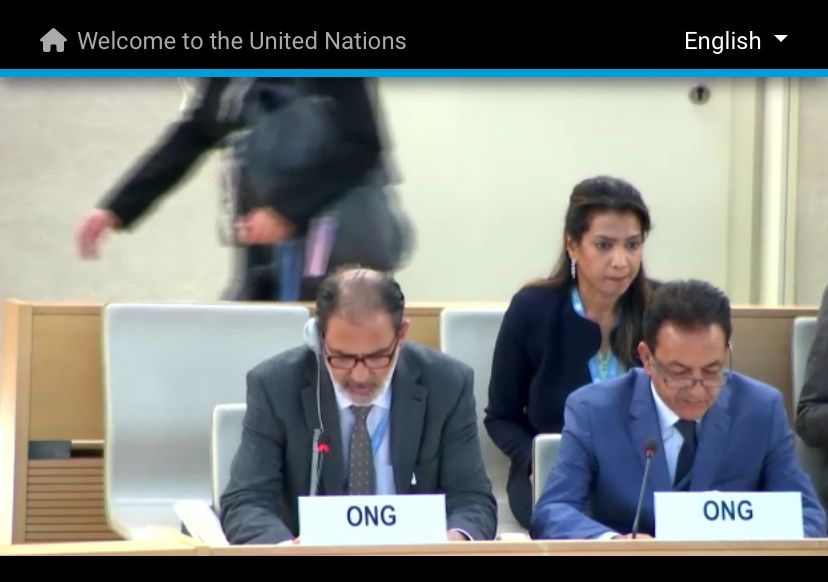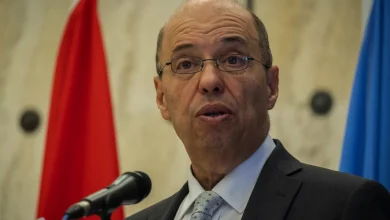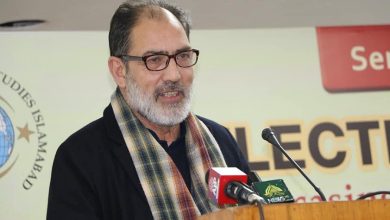Wani calls for UN action on grim HR situation in IIOJK

Geneva: Kashmiri representative Altaf Hussain Wani has urged United Nations Human Rights Council to release a comprehensive report on the grim human rights situation in Indian illegally occupied Jammu and Kashmir and establish a permanent monitoring mechanism to hold India accountable for the crimes its troops have been committing against the Kashmiris.
According to Kashmir Media Service, Wani said this during a debate held in Geneva under agenda item 4 on the sidelines of the 57th session of the Council. Representing the World Muslim Congress, he stated that the people of IIOJK have suffered immensely due to India’s severe repression and constitutional terrorism. He said that it was the responsibility of the the Office of the High Commissioner for Human Rights and the Human Rights Council to advocate for the rights of the people of occupied Jammu and Kashmir.
Wani, who is also Chairman Kashmir Institute of International Relations, drew attention to the alarming situation, stating, “Kashmiris are experiencing ongoing killings, torture, and arbitrary detentions, alongside the demolition of properties.” He highlighted the intensified campaign since August 5, 2019, where the Indian government has escalated efforts to impose settler colonialism under the guise of “normalcy” and “development.” This approach, he said, has led to demographic changes, the dismemberment of the region, and the disempowerment of the majority population.
Addressing the continued bloodshed and violence in IIOJK, Wani said that the so-called normalcy has resulted in the extrajudicial killings of 914 individuals and extensive human rights violations, including the torture of 2,447 Kashmiris and the arbitrary detention of 24,625 since August 2019 for challenging the status quo .
He criticized the Indian government for misleading the international community with false narratives of empowerment, especially as elections approach. Wani asserted that these so-called elections cannot substitute for the fundamental right to self-determination, arguing that Kashmir remains under remote control from New Delhi, with the Lieutenant Governor serving merely as a pawn in a political game.








